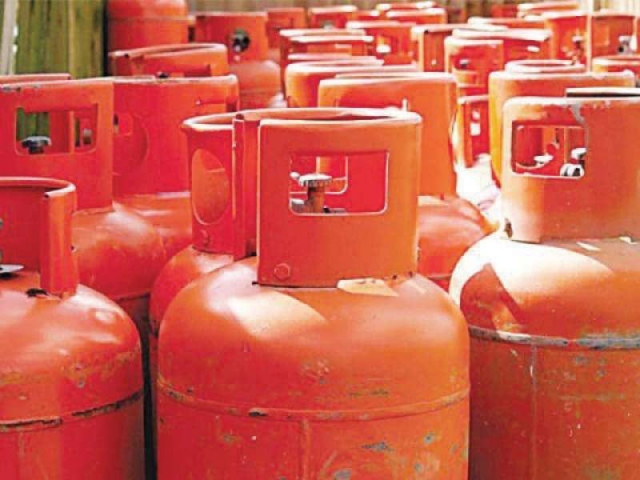Price disparity: Tax cut on LPG imports turns locally produced gas expensive
Power secretary assures distributors of taking up matter with ECC

LPG is largely used by domestic consumers, particularly in upcountry, during the winter season as pipeline gas remains unavailable in these areas. PHOTO: FILE
The reduction in taxes has made imported gas cheaper by up to Rs21 per kilogramme to Rs95 for the distributors compared to the one locally produced and sold at Rs116 per kg to them.
Both the gases, however, are sold at a uniform price of Rs130 per kg in retail in Karachi and other parts of the southern region of the country and at Rs130-140 per kg in upcountry, distributors told Petroleum Secretary Mian Asad Hayauddin at a meeting in Islamabad on Friday.
The gas is largely used by domestic consumers, particularly in upcountry during the winter season as pipeline gas remained unavailable to these areas.
“Petroleum secretary has assured us to present the issue before the high-powered ECC (Economic Coordination Committee) to end discrimination between the two (imported and local) gases,” All Pakistan LPG Distributors Association Chairman Muhammad Ali Haider told The Express Tribune.
The government’s decision of cutting taxes came at a time when it is making overall imports expensive through structural changes in monetary and fiscal policies to reduce the demand for dollars in the economy.
Earlier, the government has imposed regulatory duty on the import of 570 items and the withdrawal of the duty on LPG is in contrast to the structural change.
As per details, the ECC in a meeting held in mid-September 2018 cut General Sales Tax (GST) on the import of LPG to 10% from 17% earlier. Besides, it withdrew the regulatory duty of Rs4,669 per ton.
The decisions were taken to make gas available at affordable prices during the upcoming winter season. They, however, have resulted in discrimination with the local producers.
“The discrimination is likely to hurt production at local refineries and may hurt their petrol and diesel production as well,” said Haider, who is also senior vice chairman of the FPCCI Standing Committee for LPG.
Contrary to the cut in taxes on imported gas, the distributors have continued to pay higher GST at 17% and petroleum development levy (PDL) at Rs4,669 per ton, he maintained.
Accordingly, the locally produced gas is available at Rs116 per kilogram to distributors from marketing companies. The imported gas (via sea) is available at Rs107, while the gas imported through land is available at Rs95 per kilogram.
Pakistan’s total LPG requirement currently stands at around 1.2 million metric ton out of which the local production stands at 0.8 million metric ton, which leads to a shortfall of around 0.4 million metric ton, which is met through imports from Gulf countries.
Imports are mainly from Iran (around 250,000) Iraq (around 125,000) and Azerbaijan (around 25,000) per year. The demand is growing at 10%, which will have to be met through imports as local production is not seen to be increasing in the short-term.
Published in The Express Tribune, October 27th, 2018.
Like Business on Facebook, follow @TribuneBiz on Twitter to stay informed and join in the conversation.



















COMMENTS
Comments are moderated and generally will be posted if they are on-topic and not abusive.
For more information, please see our Comments FAQ